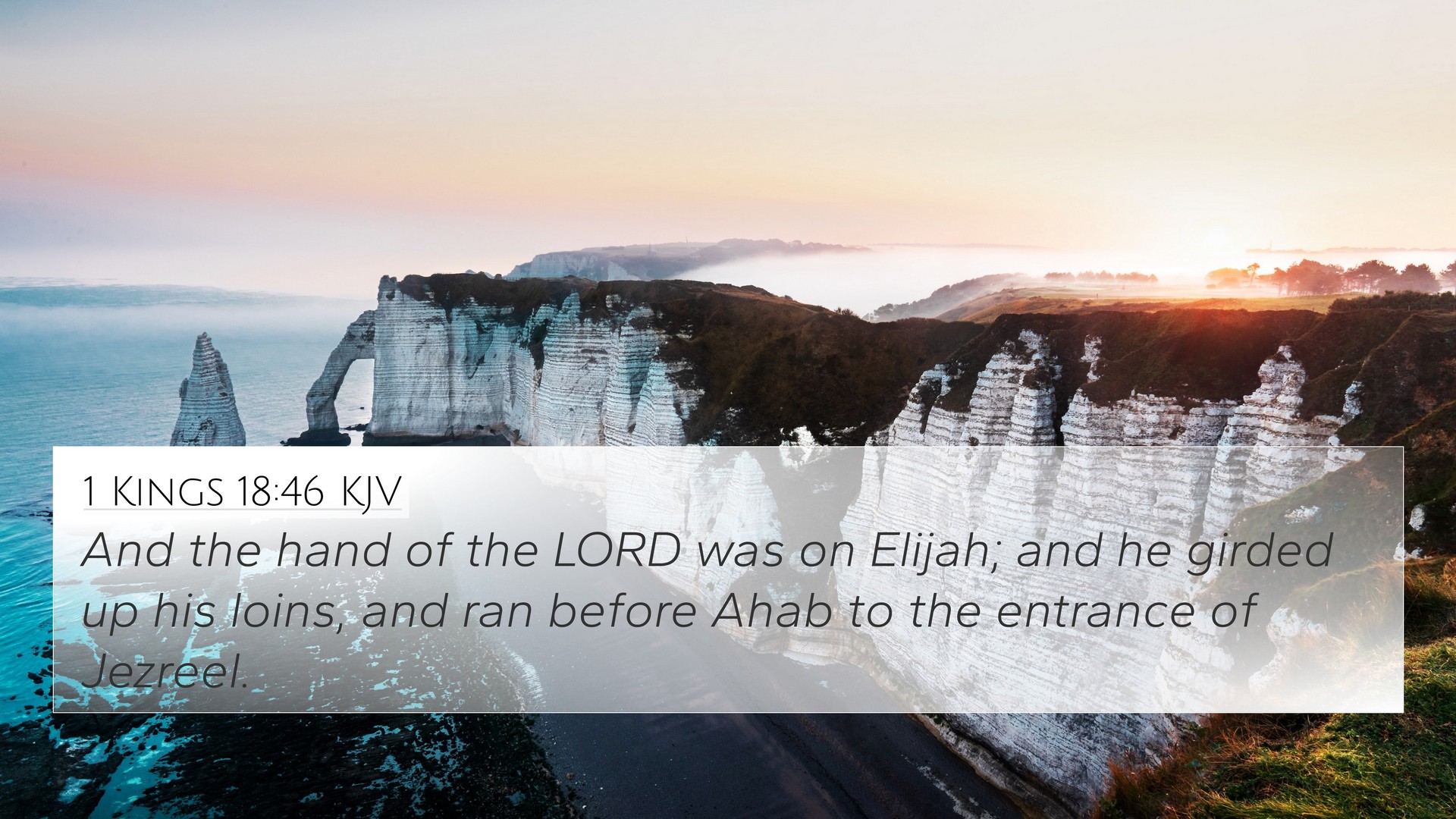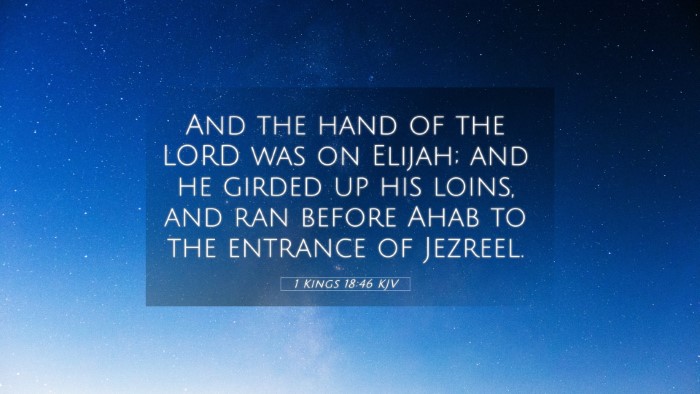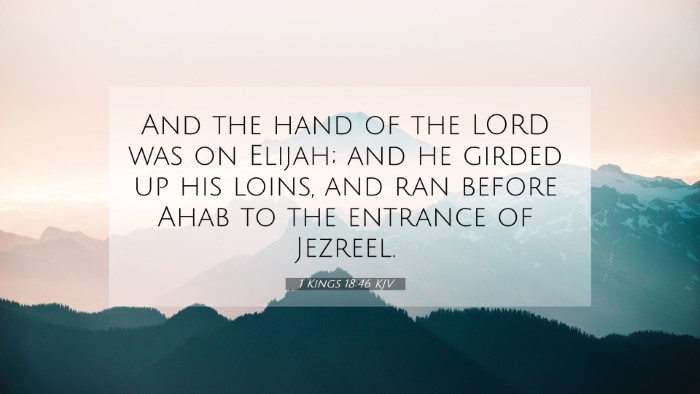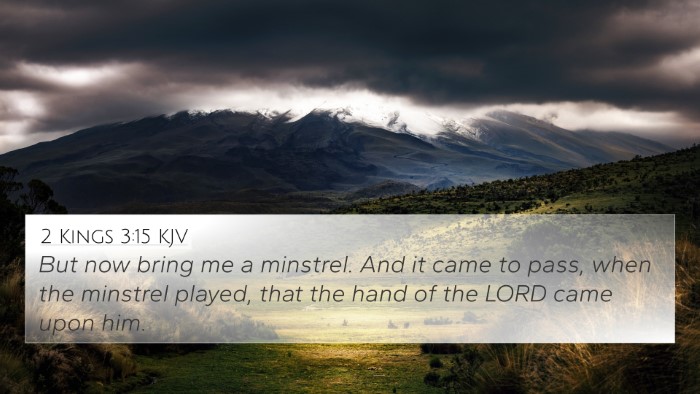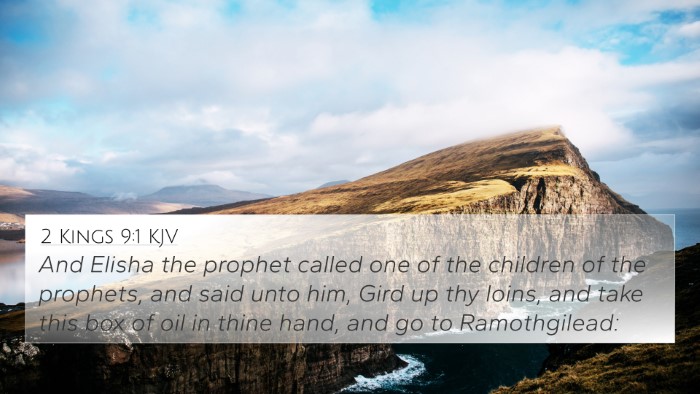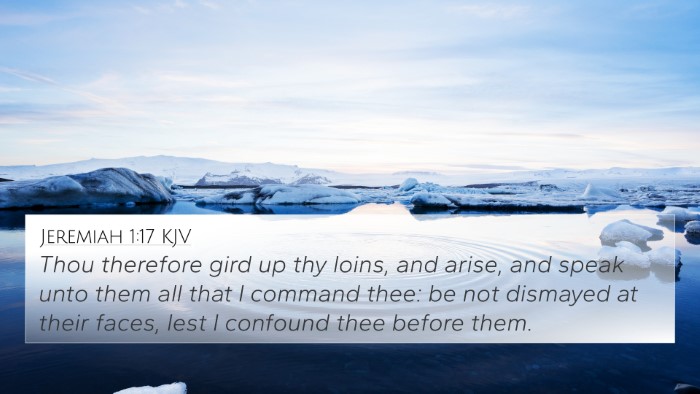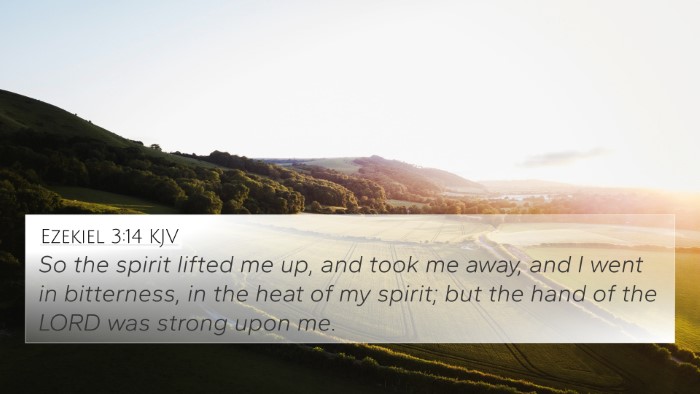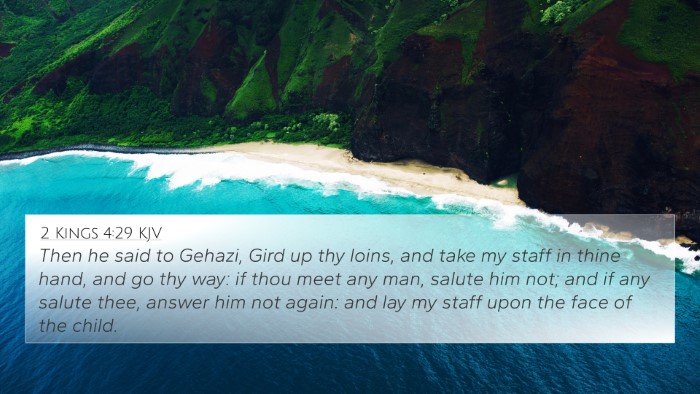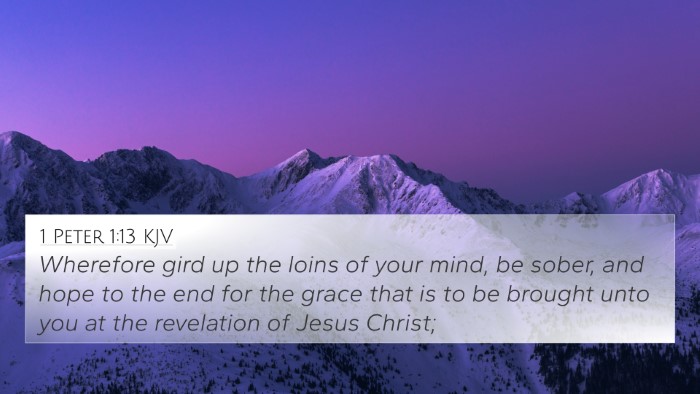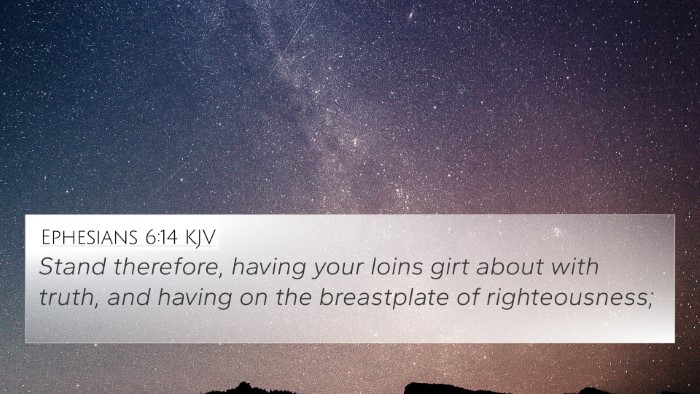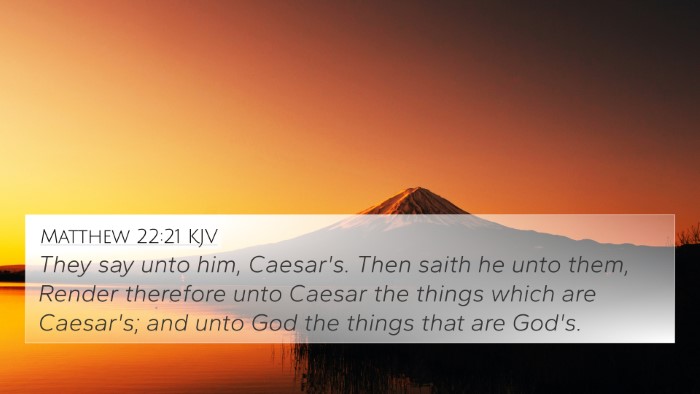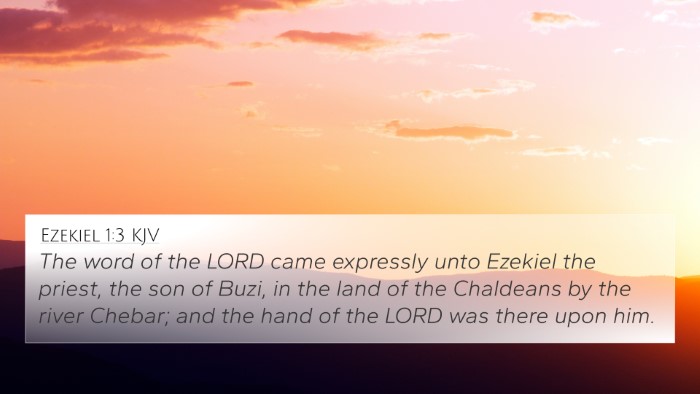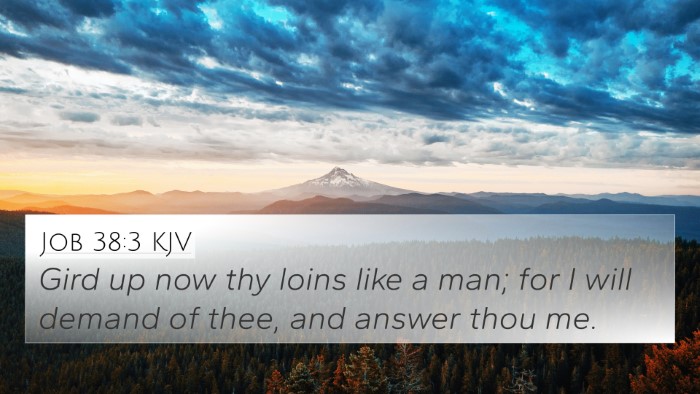Meaning and Interpretation of 1 Kings 18:46
1 Kings 18:46 states: "And the hand of the Lord was on Elijah; and he girded up his loins, and ran before Ahab to the entrance of Jezreel."
This passage exemplifies the call to action and divine empowerment. The insights garnered from noted public domain commentaries highlight several key themes and implications of this verse.
Summary of Insights
- Divine Empowerment: Matthew Henry notes that Elijah's ability to outrun Ahab signifies the powerful hand of God upon him, illustrating that divine strength enables believers to achieve extraordinary feats.
- Preparation and Readiness: Albert Barnes emphasizes the importance of being prepared for God's calling. The phrase "girded up his loins" indicates readiness for action, reflecting a principle applicable to all believers.
- Spiritual Leadership: Adam Clarke mentions that Elijah's running before Ahab symbolizes the role of a spiritual leader, showcasing how God’s chosen servants lead by example and serve with dedication.
- Symbol of Hope: This verse can be seen as a precursor to hope and restoration for Israel, as Ahab, representing the king of backsliding, must witness Elijah's faith and the presence of God's power.
Inter-Biblical Context
The connections between Bible verses provide a comprehensive understanding of this scripture. Below are several cross-references:
- 1 Kings 17:1: Elijah’s earlier pronouncement of drought sets the stage for his prophetic ministry.
- James 5:17-18: This New Testament passage reflects on Elijah's fervent prayer and its results, reinforcing the theme of faith resulting in action.
- Hebrews 11:32-34: References heroes of faith, including prophets like Elijah, who performed mighty works through God's strength.
- Luke 1:17: Discusses John the Baptist who is likened to Elijah, preparing the way, thus connecting the prophetic ministry across the Testaments.
- Isaiah 40:3: A prophecy about preparing the way for the Lord, akin to Elijah's role in calling the people back to God.
- 2 Kings 2:1: A prophetic confirmation of God's continuing lineage of prophetic leadership, echoing Elijah's significant role.
- Matthew 11:14: Here, Jesus identifies John the Baptist as Elijah, indicating the cyclical nature of God's prophetic voice.
- 1 Kings 19:8: Reflects the ongoing journey of Elijah post this extraordinary act, emphasizing that spiritual journeys involve both high points and valleys.
- Exodus 34:29: The transformation that comes from encountering God, similar to Elijah's empowerment.
- Daniel 9:22: The active role of prayer and divine intervention, resonating with Elijah's actions.
Thematic Analysis
This verse serves as a thematic bridge connecting various concepts throughout scripture:
- Faith in Action: Illustrates that genuine faith catalyzes action and results.
- God’s Leadership: Highlights how God uses individuals to lead and enact change among His people.
- Spiritual Readiness: Underscores the necessity of being spiritually prepared for God’s tasks and assignments.
- Endurance in Service: Encourages believers to persist in their God-given assignments, despite challenges.
- Hope and Restoration: Emphasizes that God can bring about change through His servants, encouraging restoration in broken relationships and communities.
Conclusion
In summary, 1 Kings 18:46 encapsulates the essence of divine empowerment, spiritual readiness, and the call to leadership. The insights drawn from the commentaries deepen our understanding of Elijah's role and the significance of God's hand upon us as believers. By cross-referencing related scriptures, we gain a fuller picture of the interconnectedness of biblical themes and narratives.
Further Reflection:
For those seeking to delve deeper into the connections between Bible verses, tools for Bible cross-referencing can greatly enhance one’s study. Consider exploring a Bible concordance or a cross-reference Bible study guide to uncover the rich tapestry of relationships within scripture.
